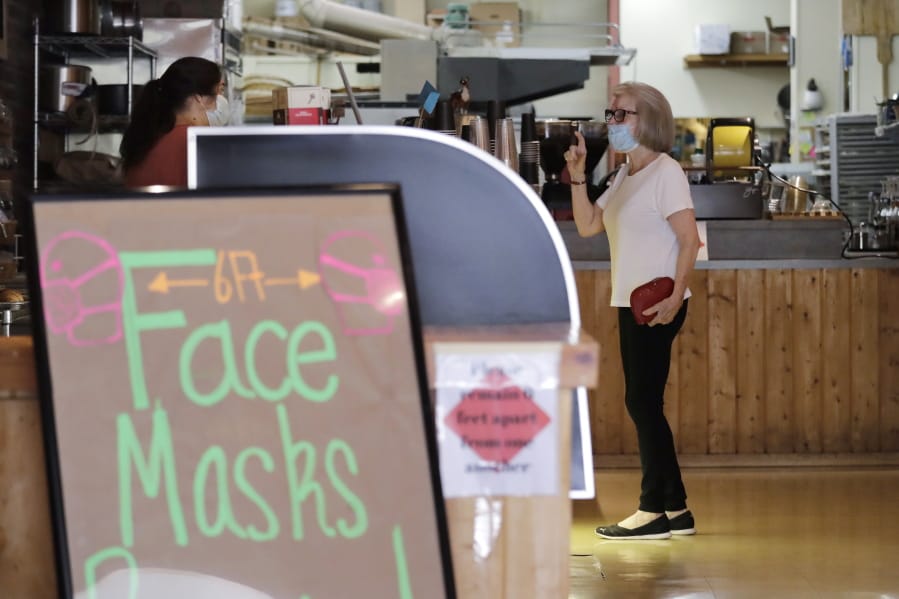YAKIMA — Fruit warehouse worker Armida Rivera says her days in Yakima County are filled with the fear of getting the coronavirus.
Sean Gilbert worries about the threat to his family’s century-old orchard business in the county.
And Washington Gov. Jay Inslee is struggling to help the county at the heart of the state’s agricultural belt that he once called home.
The coronavirus pandemic is hitting Yakima County hard, with cases surging far faster in this region about 140 miles southeast of Seattle than the rest of the state. The virus has caused turmoil in the farm and food processing industry, where some fearful workers staged wildcat strikes recently to demand employers provide safer working conditions.
Hospitals in the county are filled to capacity and have started sending patients to neighboring counties, officials said.
Efforts to slow the spread of COVID-19 among the county’s 250,000 residents have so far failed, and Yakima County is one of only three in Washington that has remained in Phase One lockdown while most of the state is starting to reopen.
Inslee said a big reason is that many people in Yakima County are declining to wear masks.
Visits to fast-food restaurants and other essential businesses found lots of employees and customers not wearing masks. In Selah, youth league baseball games were being played with spectators — few wearing masks — in the stands.
Washington will require people to wear facial coverings in public settings, under a statewide public health order announced Tuesday by Gov. Jay Inslee.
Yakima County, has additional requirements under a separate proclamation issued by Inslee. In addition to being covered by the statewide mandate on masks in public, there will now be a legal requirement that prohibits people from entering a place of business — either indoors or outdoors — without first donning a mask. Both requirements take effect Friday
The Washington Department of Health in mid-June ranked the industries in the state most struck by COVID-19. The agency found that manufacturing, including food processing plants, ranked second in cases, behind health care. Agriculture ranked fifth, behind retail trade and the hospitality industry.
Nationally, meat and poultry processing plants have been hard-hit by coronavirus, with at least 20 of those plants across the country shut down for a week or more.
Meanwhile, the 2.7 million farm workers employed in the U.S., often working and living in close quarters, are just heading into the busy harvest season.
As of Sunday, Yakima County had at least 6,283 cases of coronavirus, second-highest among counties in the state, and 138 deaths. King County, which includes Seattle and has nearly 10 times more people, had recorded at least 9,211 cases and 600 deaths.
Inslee noted the infection rate in Yakima County was 28 times higher than the rate in King County. He predicted it would jump dramatically this summer if people don’t take steps to limit exposure.
“It is terrifying,” Inslee said of the region, home to tens of thousands of workers on farms and in food processing plants who make up the bulk of the economy.
Just over 50 percent of the county’s virus cases involve Hispanic residents, who make up the bulk of the agricultural workforce. In addition, 26 percent of virus tests in the county come back positive, compared to a state average of about 6 percent.
Rivera, 36, works in a fruit warehouse. A native of Mexico who has lived 20 years in the United States, she was a leader of a two-week wildcat strike at the warehouse when management refused to provide workers with masks, hand sanitizer and other safety equipment.
“We were scared,” she said, stressing that people were working shoulder-to-shoulder.
The valley’s bounty of apples, cherries, pears and other crops are sorted, cleaned and packaged at the warehouse.



